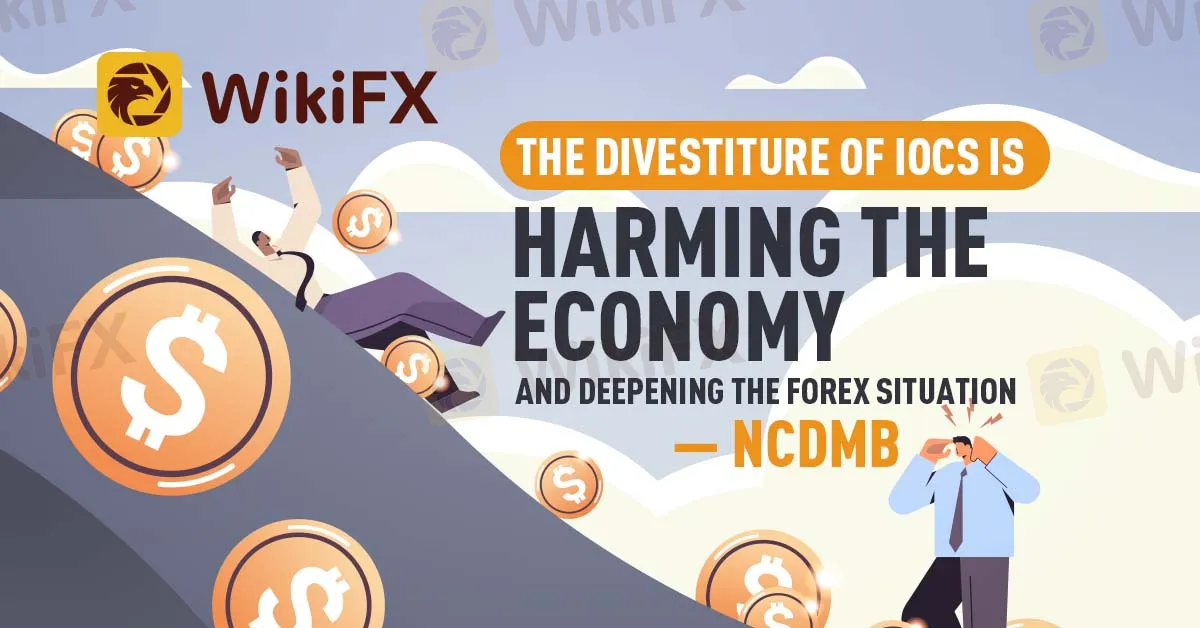简体中文
繁體中文
English
Pусский
日本語
ภาษาไทย
Tiếng Việt
Bahasa Indonesia
Español
हिन्दी
Filippiiniläinen
Français
Deutsch
Português
Türkçe
한국어
العربية
THE DIVESTITURE OF IOCS IS HARMING THE ECONOMY AND DEEPENING THE FOREX SITUATION — NCDMB
Abstract:The Nigerian Content Development and Monitoring Board (NCDMB) has expressed concern that the International Oil Companies' (IOCs) divestment and unwillingness to make new investments in the country's oil and gas industry have exacerbated the incidence of capital flight out of Nigeria.

The Nigerian Content Development and Monitoring Board (NCDMB) has expressed concern that the International Oil Companies' (IOCs) divestment and unwillingness to make new investments in the country's oil and gas industry have exacerbated the incidence of capital flight out of Nigeria.
According to NCDMB, the situation is starving the country's economy of much-needed foreign money, with monies used as loans to buy oil and gas assets leaving the country rather than being utilised to create new production facilities in-country.
Mr Simbi Wabote, Executive Secretary of the Nigerian Content Development and Monitoring Board (NCDMB), revealed this at the weekend's convocation speech at the Federal University of Petroleum Resources (FUPRE) Effurun, Delta State, titled “Defining the Value of Local Content in Petroleum Education.”
He claimed that the divestment of the IOCs has resulted in the emergence of indigenous companies playing major roles in exploration and production activities, such that companies such as AITEO, FIRST E&P, EROTON, and others have acquired assets and are now responsible for producing approximately 15% of Nigeria's oil and more than 60% of domestic gas.
On energy transition, he advised Nigeria and other hydrocarbon-rich countries to develop the necessary capacity and capability to produce and use their fossil fuel resources, noting that the need to develop capacity for fossil fuel production has become critical in light of the global trend away from oil and gas and toward the provision of funding, manufacturing of equipment, and the development of supply chains in support of renewable energy sources.
Wabote went on to say that the Federal Government and other oil and gas industry stakeholders needed to step up efforts to promote quality petroleum education and the development of competent manpower to help Nigeria meet the challenges of the ongoing energy transition and the expected boom in the gas sector.
According to him, the continuing discussion and timelines for energy transition have highlighted the need of developing home-grown skill sets to develop and manage the nation's natural resources.
“The narrative around energy transition has further exposed the necessity to guarantee that there is a clear relationship between our petroleum education and the development and utilization of our hydrocarbon resources, so we can deal with any consequence of the transition,” he said
Wabote noted that the recent passage of the Petroleum Industry Act 2021 and the Decade of Gas initiative would not only spur investment and utilization of the nation's estimated 600 trillion cubic feet of gas reserves, but would also result in a boom in the gas sector, benefiting discerning institutions, investors, operators, and service providers. “These scenarios necessitate a vibrant petroleum education sector to guarantee that our in-country skill sets are accessible and adequate to support the exploration, development, production, and processing of hydrocarbon resources,” he added.
The NCDMB chairman charged Nigerian educational institutions to prepare for the opportunities and challenges of the energy transition and gas revolution by developing a robust curriculum in petroleum education with the goal of enabling Nigerians to develop and use our hydrocarbon resources using indigenous technology. He suggested that schools place a greater emphasis on developing top-tier graduates to assist the development of Nigerian hydrocarbon resources, particularly gas.
This, he added, “will guarantee that we are not driven out of developing hydrocarbon resources owing to a lack of technical expertise, as was the situation with coal development in Enugu.”
He underlined that FUPRE is a petroleum education school that should be at the forefront of preparing our workforce needs for any outcome or impact of the Energy Transition.

Disclaimer:
The views in this article only represent the author's personal views, and do not constitute investment advice on this platform. This platform does not guarantee the accuracy, completeness and timeliness of the information in the article, and will not be liable for any loss caused by the use of or reliance on the information in the article.
Read more

ATFX Enhances Trading Platform with BlackArrow Integration
ATFX integrates the BlackArrow trading platform, offering advanced tools for forex, crypto, and stocks with automation and real-time analytics for traders.

Exposing the Truth: What Happened with the Losses of Thousands of Dollars on the GlobTFX Platform?
The facts are clear and undeniably shocking—GlobTFX has caused significant financial losses to well-known traders in the Arab world. Eighteen victims have confirmed a total loss exceeding $22,372! But this is just the tip of the iceberg…

Understanding Currency Intervention in Forex Markets
Currency intervention involves actions by a nation's central bank or monetary authority to influence the value of its currency in the foreign exchange (forex) market. These interventions aim to achieve specific economic objectives, such as controlling inflation, stabilizing the currency, or influencing trade balances.

UK Hits HSBC, 3 Banks with £104.4M Fine for Bond Misconduct
HSBC, Citi, RBC, and Morgan Stanley fined £104.4M by CMA for sharing sensitive bond market info, distorting UK gilts competition from 2009-2013.
WikiFX Broker
Latest News
Germany's Election: Immigration, Economy & Political Tensions Take Centre Stage
WikiFX Review: Is IVY Markets Reliable?
Brazilian Man Charged in $290 Million Crypto Ponzi Scheme Affecting 126,000 Investors
Become a Full-Time FX Trader in 6 Simple Steps
ATFX Enhances Trading Platform with BlackArrow Integration
IG 2025 Most Comprehensive Review
SEC Drops Coinbase Lawsuit, Signals Crypto Policy Shift
Construction Datuk Director Loses RM26.6 Mil to UVKXE Crypto Scam
Should You Choose Rock-West or Avoid it?
Franklin Templeton Submitted S-1 Filing for Spot Solana ETF to the SEC on February 21
Currency Calculator






